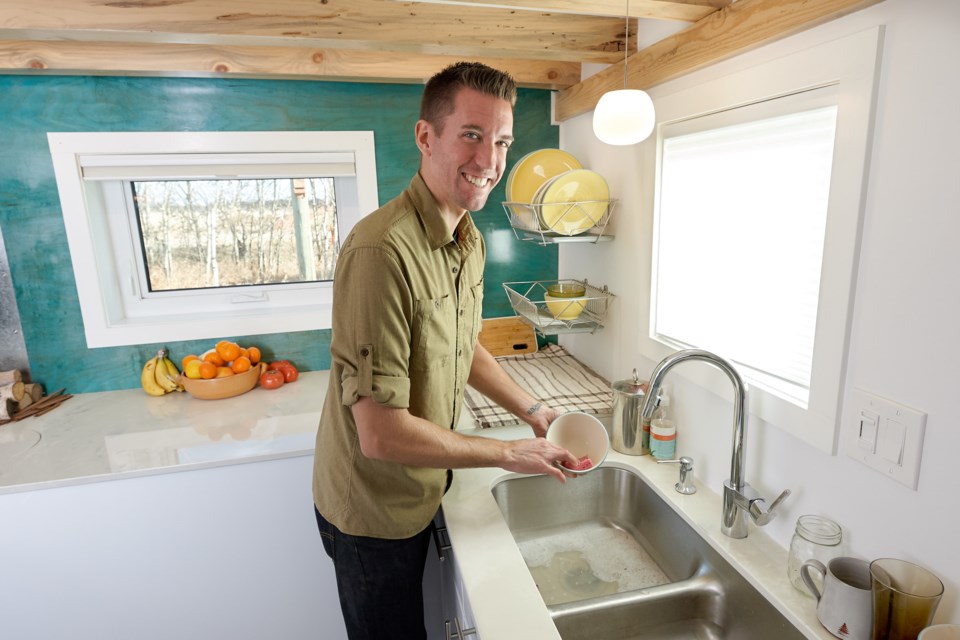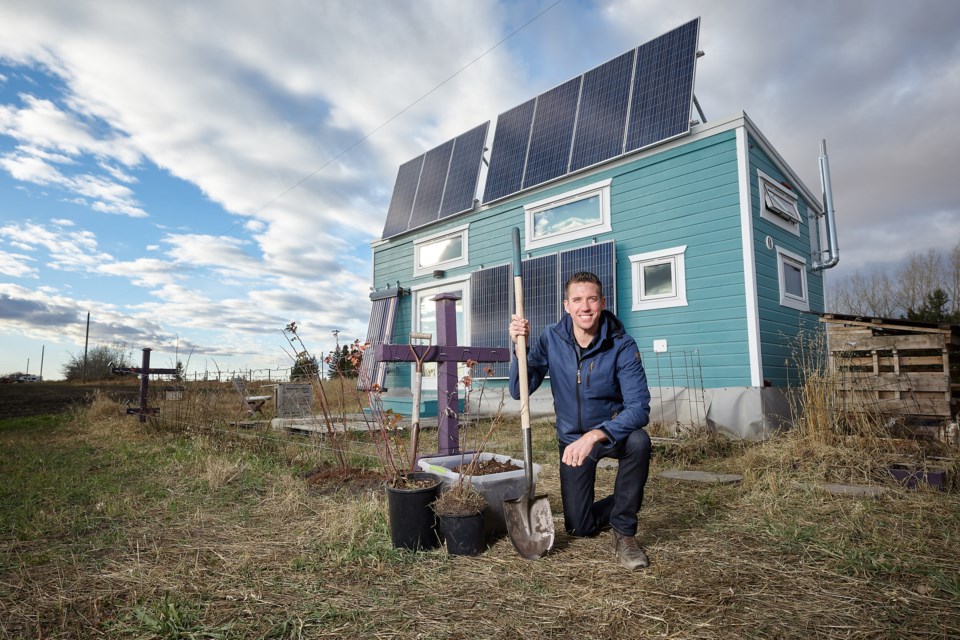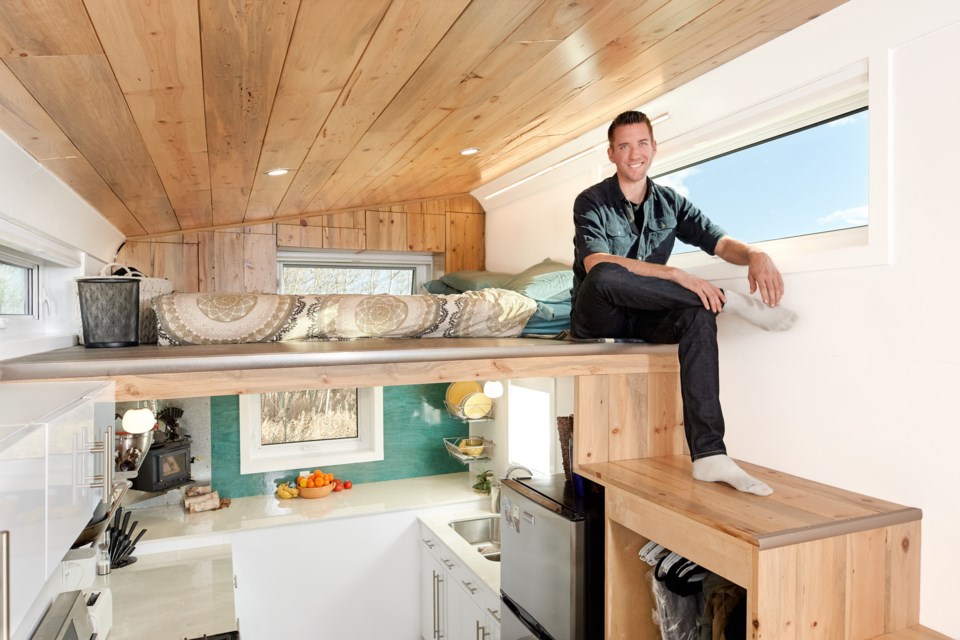A workshop coming soon to Vancouver could be the key to escaping the mortgage-paying, basement/attic cluttering rat race 21st Century.
Kenton Zerbin is a high school teacher turned tiny home specialist who created a business around his love for small space living called The Tiny House Master Plan. Zerbin and his team build small, sometimes mobile houses and teach others how to do the same. Now a teacher of sustainable living, a field of design called permaculture, Zerbin believes too many people live for their homes, their lives revolving around mortgage payments, and filling it with stuff and heating it.
That’s why later this week Zerbin will be stopping in Vancouver to give a three-day workshop to show those interested exactly how to go about making their own sustainable tiny home -- from legalities to construction.
“There is no building code for a tiny house so you have to pick another building code to work with,” Zerbin says.
While tiny homes can be classified as a RVs or as a laneway house just knowing that isn’t enough. “A huge part of the workshop is I train people on what these building options are and how do you advocate or work within the system to find the right location for where you want to live," adds the tiny home expert.
Why tiny homes?
The tiny house movement has been tried by Vancouver entrepreneurs and has popped up in other major cities in North America. Zerbin says there are several reasons for the movement’s popularity.
"A huge part of it is just how hard it is for a whole generation or two to enter the housing market,” he said. “Today, you have to have two people with solid incomes to be able to consider living in a nice city with a nice house. And so that's hard for most people to swallow and they go, 'well, what are my other options then?'”
Home-buyers also have a justified fear of instability induced by climate change, economies and real estate markets, adds Zerbin.
“Most people aren't certain they want to invest in that uncertainty in one specific place or into a mortgage, they can't afford if they lose their job,” Zerbin says. “It's a reflection of many other societal situations and issues.”
Zerbin also notes a mobile tiny home would be a way to evade the wildfires that plagued B.C.’s interior this summer. The same goes for an economic recession, the self-sufficient tiny home allowing for off-grid living.
Why wouldn’t I just buy a recreational vehicle (RV)?
A tiny home on wheels might sound like it's an RV or camper, but Zerbin says there are some key differences.
Zerbin says the first of those differences is how the home feels in terms of quality.
“RVs are often plastic and they just kind of feel cheap,” Zerbin explains. “It's not all the finishes and touching details you see in a normal house.”
The second key difference is efficiency. RVs playing the part of a tiny home have very little insulation in them, Zerbin says, which makes it hard to stay comfortable in them but tiny homes take the opposite approach.
The final reason a tiny house is different than an RV is the legal flexibility.
“You can build a tiny house on a trailer, and it can be an RV,” Zerbin explains. “You can also flip just a little bit in terms of how it's built and it can be a manufactured home and still be built on a trailer.”
How to win your own tiny house
Zerbin and his team run a YouTube account titled The Tiny House Master Plan on which they have been uploading videos of the tiny home creation process. Once completed the tiny home they have been working on will embark on a national tour to promote the concept.
To win that tiny house all one needs to do is subscribe to the YouTube channel and fill out a submission form on The Tiny House Master Plan website.
The upcoming three-day tiny home workshop in Vancouver starts Friday, August 27 at 6 p.m. at the St. James Community Square.




.jpeg;w=120;h=80;mode=crop)
